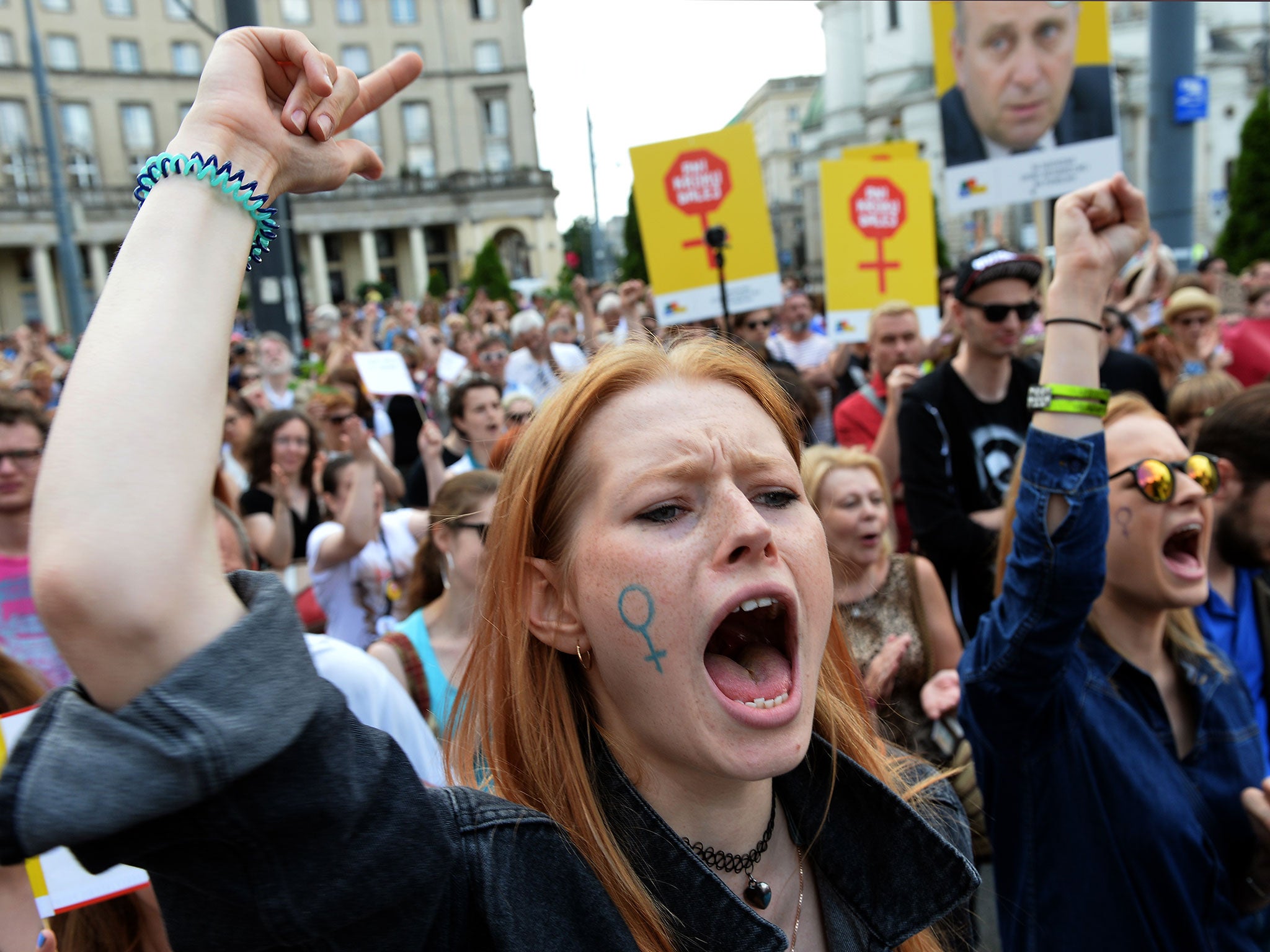Polish women to stage all-out strike to protest abortion ban
Country’s government considering tightening local laws on terminations

Your support helps us to tell the story
From reproductive rights to climate change to Big Tech, The Independent is on the ground when the story is developing. Whether it's investigating the financials of Elon Musk's pro-Trump PAC or producing our latest documentary, 'The A Word', which shines a light on the American women fighting for reproductive rights, we know how important it is to parse out the facts from the messaging.
At such a critical moment in US history, we need reporters on the ground. Your donation allows us to keep sending journalists to speak to both sides of the story.
The Independent is trusted by Americans across the entire political spectrum. And unlike many other quality news outlets, we choose not to lock Americans out of our reporting and analysis with paywalls. We believe quality journalism should be available to everyone, paid for by those who can afford it.
Your support makes all the difference.Women in Poland are to stage an all-out strike to protest the country’s plan to effectively ban abortions.
Female workers across the predominantly Catholic country will take part in the action on Monday, in an effort to disruptively draw attention to attempts to restrict Poland’s severely limited abortion laws even further.
Those taking part hope the strike will bring Polish society and the economy to a standstill.
Currently, abortion is only permitted in cases of rape or if the woman or foetus’ life is in danger. However, legislators have proposed restricting the laws further still to eliminate even these exceptions. Women who break the law could face up to five years in prison. A government committee is currently considering the changes.
Women have been urged to join the strike to protest the move, by refusing to attend work, The Krakow Post reports.
Known locally as the “black protest”, official strikes will be taking place in over 60 different Polish cities. In an act of solidarity, a number of businesses and corporations have reportedly pledged to shut their doors as part of the strike. Protesters are also encouraged to wear black and post photos on social media of them participating in the action.
A leaflet circulated online states: “Black protest in defence of the right to life and health of women in Poland. We demand access to reliable sex education, contraception and effective in vitro procedures. We oppose the further tightening [of] abortion laws.
“What can you do? Rather than go to work, go [to] a demonstration. If you have to be at work or at home: Dress in black, take a picture and post [on] social media with the hashtag #BlackProtest #CzarnyProtest to show solidarity. Talk to your mother, sister, cousin, friend, colleague. Tell them about the strike and the situation in Poland.”
The strike has received support from high profile Polish figures including super model Anja Rubik, who shared her support on social media.
The pressure group Stop Abortion has driven calls for a total ban on abortions in Poland. It is supported by the Catholic Church and Prime Minister Beata Szydlo as well as Deputy Justice Minister Patryk Jaki have indicated support for the group. A total of 87 per cent of Polish people identify as Catholic and the church continues to hold considerable influence over society.
According to official figures, around 1,000 legal abortions are performed in Poland every year. However, it is estimated that a considerably higher number also take place illegally, with up to 150,000 women each year performing abortions on themselves often with pills bought online.
In June of last year, activists used drones to fly abortion pills into Poland in a show of solidarity with local women.
Globally, 66 countries permit abortion only if a woman’s life is in danger. A further 59 permit it solely to prevent serious harm to a woman’s health.
In the UK, it is a criminal offence to have an abortion in Northern Ireland, where women face up to life in prison for having an abortion, including in instances of rape, incest or if the foetus is so severely disabled that it will not survive birth.
In April of this year, a 21-year-old woman was trialled in a Belfast court and found guilty of “committing” an abortion aged 19, when she performed an abortion at home and her flatmates reported her to the police after finding foetal remains in their household bin and she was subsequently arrested. Westminster MPs have been urged to overturn the ban by passing legislation in the House of Commons.
Join our commenting forum
Join thought-provoking conversations, follow other Independent readers and see their replies
Comments